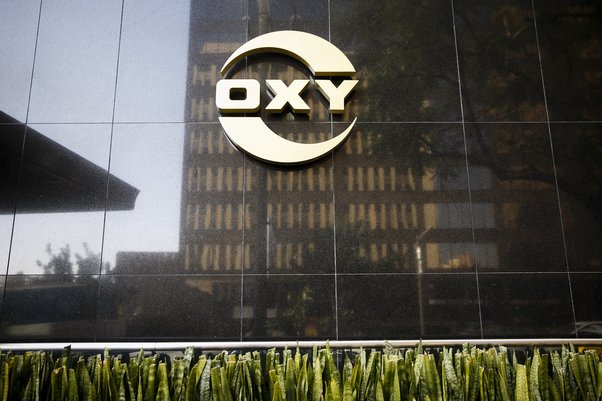This week marks ten years since the Supreme Court decided Citizens United, which opened the floodgates of corporate money in politics and further entrenched corporate influence over our government.
Citizens United contributed to the unprecedented assault on public interest policies that we are seeing under the Trump Administration and in Congress.
For a clear demonstration of this, look no further than the climate inaction and environmental regulations rollbacks that defines our current political landscape—all at the behest of the oil and gas industry.
Over the last ten years, seven out of the top twenty corporate donors to campaigns are from this industry, and the energy and natural resources sector has spent more than $638 million in campaign contributions—not including all the dark, untraceable money propping up campaigns.
This may shed light on why a crucial transparency law to curb corruption in the oil, gas and mining sector is still not implemented, almost ten years after it was passed by Congress and signed into law.
For those of us who have been following the saga of the bipartisan Cardin-Lugar anti-corruption provision of the Dodd-Frank Act, it is like Groundhog Day. Again. The law is intended to stop oil companies from entering into corrupt deals with foreign governments. It requires US-listed oil, gas and mining companies, like Exxon and Chevron, as well as foreign giants like Petrobras and PetroChina, to disclose their payments to governments for each project.
However, actual implementation of the law has proven to be tricky.
The Securities and Exchange Commission (SEC) first issued an implementation rule in 2012 and the oil industry lobby took it to court. The rule was vacated on narrow grounds in 2013, and we ended up in the same place that we started.
After the SEC issued a second regulation to implement the law in 2016, the power of corporate money showed again. Industry lobby encouraged Congress to use an arcane law known as the Congressional Review Act to disapprove of the regulation and send it back to the drawing board. And that is exactly what the newly-elected Congress after the 2016 election did. In February 2017, Congress voted to disapprove of the rule and President Trump signed it into law as a Valentine’s Day gift to dictators around the world.
The members of Congress who voted for this bill on average received six times as much funding from the oil and gas industry as those who opposed it, according to analysis by Global Witness based on voting information from Legiscan and campaign finance data compiled by the National Institute on Money in State Politics. That same year, the Center for Responsive Politics reports that the energy and natural resources sector sent more than three lobbyists to Washington for every congressperson.
Fast forward to now, and the SEC has just issued a proposed rule that is a giveaway to fossil fuel interests and doesn’t meet the original anti-corruption intent of the law. It also falls well below the global standard that the US helped set when we were still a leader in the fight against corruption.
It should come as no surprise that the SEC’s proposal cites industry commenters nearly three times as often as civil society and more than seven times as much as investor comments whom the SEC was set up to protect, according to analysis by Publish What You Pay United States.
This proposed rule won’t deter corruption. For sunshine to work as a disinfectant, it has to shine enough light. In this case, it doesn’t require the disclosure of payment information for individual deals, and we know from our experience investigating oil corruption for over two decades that corruption happens at the level of the deal.
Take for example, our investigation into Shell and Eni paying over $1 billion for one of the most lucrative oil blocks in West Africa. The money was paid to the Nigerian government, but the companies knew that it would go to a shell company owned by a former oil minister who had awarded himself the block – and also happened to be a convicted money launderer. The two companies and their executives responsible for this deal are now facing a criminal trial in Italy and have also been investigated in the Netherlands, Nigeria, UK and the US. It is highly unlikely that this deal would have happened if the Cardin-Lugar provision had been in force as Shell would have known their billion dollar payment to a convicted criminal for this scandal plagued block would not have remained secret.
Project level reporting allowed us to spot anomalies in Glencore's declarations of royalty payments from a copper mine in Democratic Republic of Congo (DRC), enabling us to prove that Glencore was redirecting these payments to the controversial middleman Dan Gertler. Glencore told the Extractive Industries Transparency Initiative (EITI) that it had made royalty payments to DRC's state-owned mining company, but that company initially declared receiving nothing. By cross-referencing this with financial records from Glencore's subsidiary, we were able to uncover a secret arrangement in which Gertler had obtained the rights to receive royalties from Glencore's mine. This meant that he, rather than DRC, was benefiting from these multi-million dollar payments. Gertler has been sanctioned by the US, and the US and UK are now investigating companies that partnered with Gertler in DRC, including Glencore.
These examples demonstrate that only payment transparency at the project level can deter these types of questionable deals. The SEC rule must be improved so that it supports the global fight against corruption by requiring payment reporting for each individual deal, without exception.
Last year the House of Representatives passed sweeping anti-corruption legislation to reduce the influence of money in our politics. Senator McConnell needs to bring the For the People Act to the floor of the Senate for a vote. If we don't curb money in politics, the US government will continue to be bought out by corporate interests.


